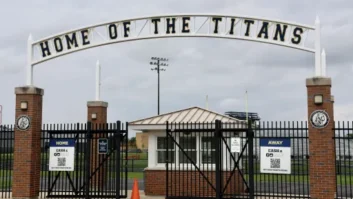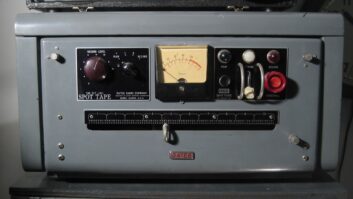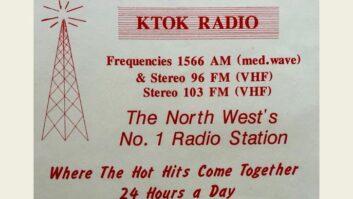Gregory Dean, founder of a company that pioneered in the areas of radio traffic and billing and automation, died Sept. 11 in Overland Park, Kan., at age 72, the Kansas City Star reports.
“Greg Dean was a true pioneer, inventing many of the tools that radio stations have taken for granted for decades,” UncompressedMusic.com CEO and Scott Studios founder Dave Scott wrote in an email to Radio World.
Dean and his wife Vicki founded Computer Concepts Corp. in 1974 in Lenexa, Kan. He discovered a talent for computers after using a Wang 2200 computer to create accounting software for his five Dunkin’ Donuts franchises — stores that he acquired as part of a plan to become a radio station owner.
Dean had attained his FCC first-class amateur radio license and built a radio transmitter at age 16, then turned his interest into a job at Austin, Texas, station KNOW(AM) while he was a student at the University of Texas. He later moved to Wichita, Kan., where he had stints as on-air talent for KLEO(AM) and KEYN(FM).
With his radio background, it’s not surprising that Dean realized his accounting “software could be adapted into a turnkey broadcast-scheduling system,” according to his obituary.
Scott recalls that Dean put a pilot’s license, earned at age 16, to good use during the 1970s and ‘80s. The company owned a small airplane, which Dean and field techs who were also pilots used to “provide quick on-site service to radio stations if needed in the era of mainframe computers.”
During Computer Concepts early days, Scott remembers, “We exhibited across the aisle from each other at most trade shows” when Scott ran Century 21 Programming from 1973 to 1992.
Dean went on to expand CCC’s portfolio to include other applications, and the company eventually grew to 110 employees and had clients on five continents, according to his obituary.
Among other innovations, Dean and his team developed Visual Traffic in the early ‘90s — “the early days of Windows and graphical user interface,” Scott said.
According to Scott, Computer Concepts in 1990 developed the Digital Commercial System radio automation for satellite formats, which he called an industry standard. Scott noted Dean also co-owned “a patent on the first ‘2+1’ digital audio card that could play back with overlap of two recordings while recording something else at the same time.”
Later in the decade, the company developed Epicenter, an audio-over-IP super-switcher, but CCC soon after encountered financial challenges.
In 2000, Computer Concepts merged with Scott Studios, which had entered the market as a competitor in 1992. Computer Concepts Corp. became a wholly owned subsidiary of Scott Studios; the Deans owned 20% of Scott Studios as part of the deal. Scott was also made CEO of CCC, but Dean remained on as vice president and also held a seat on the board of directors for a brief time.
The Maestro and Visual Traffic products retained the Computer Concepts branding until Visual Traffic was sold to Wicks (now Marketron) in 2001. Scott said that Wicks traded its “Digital Universe automation product to Scott Studios in exchange for Computer Concepts’ Visual Traffic and a very large cash payment.”
In 2004, dMarc Broadcasting acquired both Computer Concepts and Scott Studios, which then sold them to Google a year later. WideOrbit then purchased the companies in 2009.
Dean continued his pioneering work until his 2013 retirement, when he began to suffer from symptoms of Lewy Body Dementia, according to his obituary.







